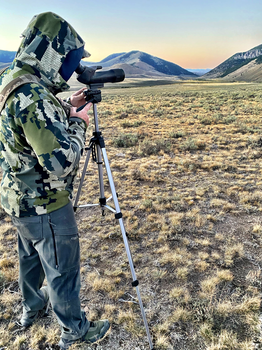 No matter where you fall on the spectrum of political viewpoints, recent news will no doubt leave you wondering what authority the government does or does not have. And if you aren't wondering, you should be. At the end of the day, no matter your beliefs, government mandates will impact you. So, let's talk about what a mandate is, and whether the government has the authority to mandate vaccines.
- Jill
0 Comments
Let's talk about sex. School is starting again, which means that - whether we like it or not - young people are bound to start mingling. Having had many conversations over the last several years with parents, friends, and community members, it has become apparent that most people don't know the laws surrounding sex between young adults. So, let's talk about it.
- Jill  What better time to write about Freedom of Speech, than the week of Independence Day. The Supreme Court recently addressed freedom of speech in Mahonoy Area School District v. B.L., in a case discussing a high school student's expressed frustration with the school on Snapchat. The high school cheerleader had tried out for the cheerleading team, and did not make it. So she posted a couple of photos on her Snapchat with middle fingers raised, stating "Fuck school fuck softball fuck cheer fuck everything." The school suspended the student from the team, and so ensued this case. I'll remind parents now, this might be a good time to read the other blog post on protecting your kids from social media trouble, found here. So, was the student's off campus speech, on her smartphone, via Snapchat, protected under the First Amendment? The Court said YES. The Court, in its holding, reminded that students do not "shed their constitutional rights to freedom of speech or expression" even "at the school house gate." See Tinker, 393 U.S. at 506. The Court went on to say that Minors are entitled to significant measures of First Amendment protection. There are some instances in which the student speech may be regulated in the school: lewd, vulgar speech uttered on school grounds or during school assembly; speech uttered during class that promotes "illegal drug use"; and speech that others may reasonably perceive as bearing the imprimatur of the school (such as statements in school newspapers). And finally, the Court has held that schools do have a special interest in regulating speech that "materially disrupts classwork or involves substantial disorder or invasion of rights of others." See Tinker, at 513. So, even though the school may have the right to limit speech of a student in certain circumstances, the Court has held that generally, there are a few circumstances where student speech cannot be regulated. First, off-campus speech should normally fall within the zone of parental responsibility, rather than school responsibility. Second, courts are more skeptical of a school's effort to regulate off campus speech, because doing so may result in the student not having any right to free speech, at all. And third, schools should work to ensure that future generations understand the workings in the well-known statement: "I disapprove of what you say, but I will defend to the death your right to say it." In other words, schools should encourage students to express the unpopular opinion and engage in meaningful conversation. In summary, the Court found that the student's speech about the school was essentially criticism of the team, the coaches, and the school. It did not involve any statement that would place it outside the normal First Amendment protections. While crude, the statement did not amount to fighting words and did not pose a threat. In fact, had the student been an adult, the speech would have been provided strong protection under the First Amendment. See Snyder v. Phelps, 562 U.S. 443, 461 (2011), a case which held that the First Amendment protects "even hurtful speech on public issues to ensure that we do not stifle public debate." So, what does this mean for your kids? Can they say what they want, when they want? Not really. The Court relied heavily on the fact that this student's statements were made outside the school grounds and outside of school hours. The Court also relied on the fact that these statements were not shown to disrupt the school in any way, other than a few small conversations by students who had seen the post. Finally, the Court considers whether the parents should be acting, or if it is speech that the school should be regulating. In the words of George Orwell, "If liberty means anything at all, it means the right to tell people what they do not want to hear." Happy Independence Day, Friends. - Jill  Divorce is a topic that many hope they never find themselves researching, but there has been an increase in divorce over the last year, and if you find yourself in that position, you should be prepared. Below are some tips for navigating the divorce process from start to finish. Hope you find these tips helpful. 1. Is There An Agreement? The first question you should ask yourself is whether you and your spouse are in agreement. Are you in agreement that a divorce needs to happen, and are you in agreement with how things should be settled? If so, you may be able to proceed with a divorce action without an attorney. While it is always a great idea to consult with an attorney, Montana has done an excellent job of providing resources to those who may not be able to afford that option, and find that they can get things done themselves. See this link for forms on filing a divorce and parenting petition in Montana, and some very helpful information to guide you through that process. 2. Do you have minor children? If you have minor children, the most commonly discussed area will certainly be the parenting plan. Most parents find themselves wanting the most amount of time they can get with their children, and this piece of the divorce puzzle can be very difficult emotionally. If you have minor children, and you and your spouse are not on the same page with regard to the parenting of those children, it would be a good idea to find an attorney. An attorney can be a great resource to provide you with reasonable expectations, the law regarding parenting time, and what to expect in a parenting plan. One of the biggest issues with parents doing a parenting plan without an attorney tends to be the lack of information contemplated in that plan. Unfortunately those parents often end up needing to remedy those issues at high-stress times. When children are involved, it is a great idea to have an attorney as a counselor to guide you through that process. 3. What is the First Step? Whether or not you have an attorney or represent yourself, the first step in getting a divorce moving will be for one party to file a Petition for Dissolution action. This person filing the petition will serve their spouse, and their spouse will then have 21 days to respond to the petition. This starts the process for divorce, but know that the process is still a long ways from being complete. There are many steps between filing and finality, and patience is a virtue. 4. What Can I Expect? Divorce is an emotional process, and you should expect that the process will probably not go perfectly. The settlement of property and the parenting of children requires big decisions to be made, and taking your time is a good idea. You can expect in Montana that the Judge may order mediation to be done prior to seeing the Judge. Many Judge's in Montana require mediation prior to trial, in an effort to allow the parties to settle without going to court and having a full trial. 5. What is Mediation? Mediation is a private, confidential, informal dispute resolution process where an impartial third party (the mediator) assists parties in resolving their differences. See M.C.A. 26-1-813. In other words, mediation is a meeting with a third party mediator where the mediator tries to help the parties work out a resolution with regard to the divorce: property settlement and parenting if necessary. Your settlement offers and statements you say in mediation cannot be used against you in trial. The goal of mediation is to provide parties with an opportunity to speak freely and openly about what they may be willing to settle for, without feeling like that could be used against them if they don't settle and have to go to court. Mediation can be a fruitful process, saving the parties many long hours of stress, anxiety, and legal fees in preparation for trial. To be successful in mediation, be prepared and ready to talk about all of the issues that need to be settled. 6. What if We Have to go to Court? If you have to go to court, that means you have likely exhausted all the discussions about settlement and have a trial date set by the Court. You will need to make sure you have all of your witnesses (people who can testify about the issues you need to bring up) and exhibits (documents you need the Judge to see to make a decision) ready to go and given to your attorney if you are represented. Preparation and organization will serve you well if you end up in Trial. In summary, do your research and do some self reflection when deciding how you want to proceed with divorce. If you feel like you and your spouse may be able to resolve things on your own, feel free to utilize the resources above. If you feel like you and your spouse could use some assistance or will have difficulty communicating throughout the process, it would be a good idea to get an attorney involved and have their assistance. Hope these tips are helpful in navigating this difficult process. -Jill  Well, we are on Day 45 of the Montana Legislative Session and the people of Helena are busy. If you are interested in what's happening in Helena, and what may or may not affect you, I would suggest going here for an overview. Here are some new laws that I thought might interest my readers:
There are many other laws in the works that might interest you. I would suggest doing a search for topics of interest so you can see what's happening. If you have questions about what is coming, please feel free to send a message or comment and I will provide updates as they are available. Stay informed, educate yourself, and keep up to date. These things matter to all of us in one way or another. - Jill  So your kid is in trouble. I know, you all think it won't happen to you. You are a good parent. You set rules and boundaries, and you teach your kids respect. Your kid has good grades. The teachers love her. He would never do anything to disappoint you. It's all well and good, except for one thing: kids are kids, and sometimes they do things we wish they wouldn't. Let's start with the why. Kids can get in trouble for a variety of reasons, and with varying degrees. But one thing is certain: kids make poor decisions. Recent research has shown that juvenile brains do not fully develop until the age of 25. Twenty-five. Think about what you were doing at 25, and then consider that your brain wasn't even fully developed. Because this information is still relatively new, many children have been treated as adults in the criminal justice system. We are now faced with undoing some of those mistakes. Now that we know why even the best of the best kids might make a really poor decision, let's talk about what to do if it happens in your family. First, make sure you understand the seriousness of what is going on. Is your kid facing a misdemeanor? A curfew violation? A felony? The varying degrees of seriousness are really important in how you move forward. If your kid broke curfew, you can probably work that out without hiring an attorney. But if your kid is facing a felony, take it seriously. Next, find out if a juvenile probation officer is involved, assuming your kid is under 18. If so, this person can be an extremely valuable resource for you to assist with navigating the seriousness of what has happened and making a decision as to how to move forward. Once you have assessed the seriousness, your next step is likely to make contact with an attorney. This can be a valuable meeting and you will likely learn from that person how to handle moving forward. Your attorney can also assist with meetings with investigators, if necessary. Make sure your attorney has experience dealing with juvenile offenses if your child is under 18. There are different laws regarding juveniles and your attorney needs to be well-versed in that area. Often times parents call my office when it's too late. Their kid has already seen the Judge and pled guilty. Or their child went to the police and confessed to everything, or worse, lied about everything. Don't wait until it's too late. Be proactive. This is not a time to let your kid "learn lessons the hard way" as the charges will follow them around for a very long time, depending on their age and the seriousness of the offense. Here's hoping that your children are never faced with a legal battle. But if you do find yourself in that position, contact a lawyer and be proactive. You will get through it, and your kid still has a future. - Jill  Ok, friends, Hunting season is upon us here in Montana. With archery season in full-swing and rifle season coming up next, I thought this would be a good time to remind everyone of the laws surrounding hunting in Montana. Many hunters - both seasoned and rookie - get themselves into predicaments without even intending to do so. The FWP regulations can be confusing and even those who have spent significant time reading the regulations may have a hard time fully understanding the nuances of the FWP laws. Top Mistakes Made In The Field:
These are just the most common mistakes made in the field. Make sure you understand all the regulations and the changes that are made yearly. The most recent FWP regulations can be found here: http://fwp.mt.gov/hunting/regulations/. If you aren’t sure if you are breaking a rule or have broken a rule, do your research or call someone for help. Better to be safe than sorry - especially when it comes to losing your hunting/fishing privileges for years moving forward. Good luck, have fun, and be safe. And if you find yourself in a bind, call an attorney. - Jill A criminal record can be something that lurks around like a big dark cloud. But the good news is, that storm can pass with Montana’s Laws allowing for expungement of a criminal record. You know the story - you went to that party in college and it got busted. You were given an MIP ticket, paid your fine, and went about your life. Nothing to worry about right? But then, you grew up, got a real job, and they pulled your record. That MIP from when you were 18 years old suddenly becomes a big deal. Let’s think about this another way: You got in a bar fight that one time 15 years ago. You paid your fines, served your night in jail, and moved on. But then you applied for a Concealed Weapons Permit, and the application asked about your criminal history. Even the most minor criminal conviction can affect you for the rest of your life.
So what do you need to do to protect your criminal record? In 2017, Montana created a route to get your criminal record expunged. Montana Code Annotated 46-18-11 outlines the procedure for expungement of a criminal record in Montana. The process is fairly straight forward, but you may find you need legal representation to assist you with the process. Depending on the type of crime you are attempting to expunge, the general process requires these steps:
Your Criminal Record is important, and should be treated that way. If you find yourself with a black cloud lurking over your shoulder, and you’d like to get it taken care of, consider petitioning for expungement of your criminal record. This is one of the best investments you can make in your future. -Jill  The Montana Governor announced a directive yesterday ordering mandatory face coverings in certain public settings in Montana. In summary, the Governor's directive requires that all businesses, government offices, or other persons responsible for indoor spaces open to the public require and take reasonable measures to ensure that all employees, contractors, volunteers, customers, or other members of the public wear a face covering that covers their mouth and nose at all times while entering or remaining in any indoor spaces open to the public. Additionally, the directive requires businesses open to the public to post a sign at all points of entry indicating that a mask or face covering is required for ages 5 and older. Additionally, the directive requires masks or face coverings to be worn at outdoor activities where social distancing is not possible or observed. Certainly there are exceptions to the mask requirement: children under the age of 5, people consuming food or drink in a public establishment, people doing strenuous exercise or swimming, people speaking to the hearing impaired, people performing in a theatrical setting when the audience is 6 feet away, people removing their mask for identification, people receiving medical treatment, and people with a medical condition precluding the safe wearing of a face covering. Within minutes, the strong personalities of Montana have expressed their opinions on what is "legal", "constitutional", "protected", etc. Many are thrilled, many are angry, and many just want to know what their duties are. So, let's get to the issue: Is the Governor's Directive Unconstitutional? Can it be enforced? What happens if I don't wear one? What if I have a disability?
Here's the summary: The Governor's directive can be found here: https://dphhs.mt.gov/Portals/85/Documents/NewsLetters/MaskDirective.pdf. Read it, ask yourself questions, and attempt to understand what it says. The directive may not even apply to you or your situation. If you have a question about whether or not it applies to something you are doing, ask questions. Understand the enforcement allowed under the directive is not first with policing, but rather, education. If someone in your community is providing false information, help educate them. I hope this information is helpful to those of you trying to sort out the new directive, as I found myself doing yesterday afternoon. If you have questions or concerns about the enforceability of this directive, feel free to ask. - Jill This blog post is for information purposes only, and does not constitute legal advice.  Do I really need a lawyer? Couldn't I just do this myself? I mean, I watch a lot of Law and Order. It can't be that hard, with the assistance of a google search-bar. These are all thoughts that cross the minds of many people when considering whether or not they need a lawyer. Many times the question of whether or not a person really needs a lawyer is crossing their mind due to finances. Sometimes, people might truly assume they'll be fine without one. And sometimes you may not actually need a lawyer. This post will provide some guidance on things to consider when making this very important decision, resources for legal help if you can't afford an attorney, and resources for times when you might be going at it alone. Deciding if you need a lawyer:
If you have any further questions about legal representation, or representing yourself, please feel free to reach out to our office for additional guidance or a Free Consultation. -Jill |


 RSS Feed
RSS Feed